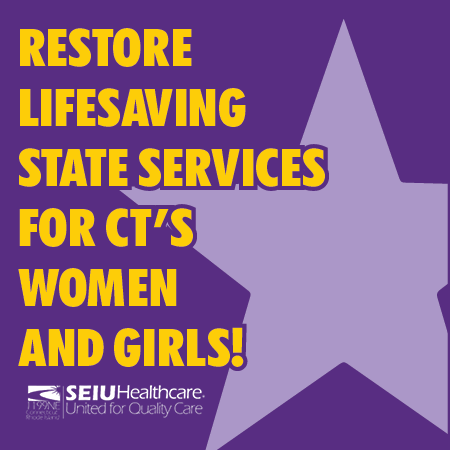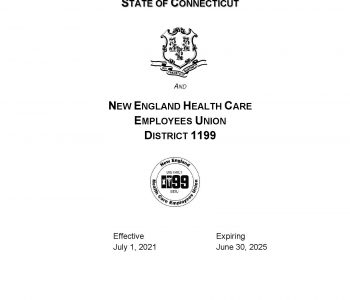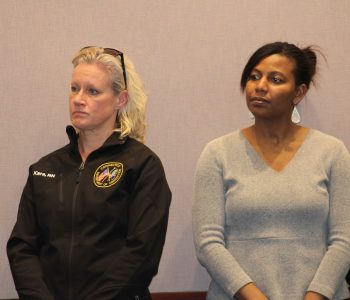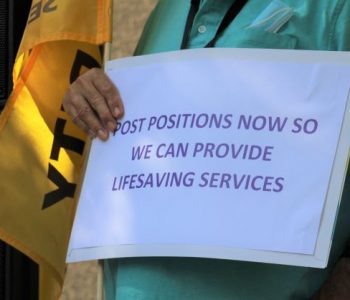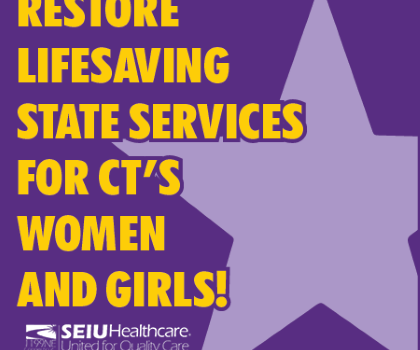 State Employees
State Employees
Written by Donna Brooks for the Hartford Courant
Link to the Digital Courant Article here
Link to the PDF of the published article here
Connecticut had one in-patient unit available for women in addiction recovery. Now, it’s gone.
I can’t talk about women’s health and treatment without being political, especially not when the state of Connecticut is failing some of its most vulnerable women.
There were once three state-funded rehabilitation programs serving individuals in recovery from substance abuse in Connecticut Valley Hospital. Two units were all male. The third program, known as Sisters Together Achieving Recovery, or STAR, was the state’s only female in-patient unit for addiction recovery.
Now, 30 years after we fought to build it, STAR is gone. At least for now.
I spent decades working in the field of mental health care. Back in the ’90s, I was one of several staff members working for the Department of Mental Health and Addiction Services, or DMHAS, who submitted the initial proposal for gender-responsive treatment models. It centered women’s needs in addiction recovery. A year later, I became a founding member and director of Connecticut’s STAR Program.
The STAR program was once the highest level of care available in Connecticut for treating chemical dependency. At its height, it contained 40 beds and served as a one-stop shop for women’s health and recovery needs, with 600 admissions and discharges each year.
When I first started this work, women represented only around 15-20 percent of patients receiving treatment for substance abuse. But 50 percent of substance users are women. The small portion of women who sought treatment within our co-ed facilities would rarely complete their recovery programs.
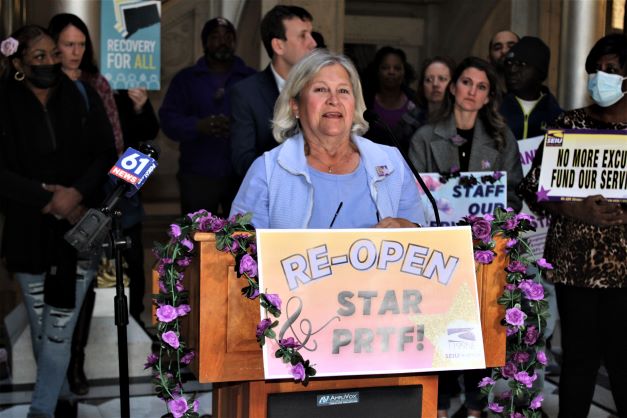
There were several reasons why co-ed treatment programs were unsuccessful. Often, women turn to addictive substances to self-medicate against trauma. The women who came to us had often endured unfathomable violence through repetitive emotional, sexual and physical injury.
A woman would arrive in treatment to find that the gender of their rapist, their oppressor, their pimp, or their john was in the same room. I watched again and again as women would shut down, closing off from treatment because they did not feel safe to receive care. Sometimes, a domestic partner would call and threaten to abandon her children, forcing her to leave treatment immediately. Other times, a jealous partner would pull her out after finding she was around other men in therapy.
In March of 1996, we established STAR in Connecticut after years of identifying how these (and several other) unique challenges inhibited women on their journeys toward recovery. At the time, there were no other programs like it in our state. As far as I know, that was still the case until the STAR program’s recent demise. When the coronavirus pandemic began, STAR was consolidated with the men’s unit.
Many women came to STAR with co-occurring disorders. They battled chemical dependency, eating disorders, mental trauma, domestic violence, postpartum depression, and had other medical conditions. Some were pregnant.
STAR offered wrap-around services with a special team of nurses, psychiatrists, physicians, social workers, dentists, educators, and addiction counselors to provide holistic care to women in recovery.
We never turned away a woman who met the criteria for admission. As the program got on its feet, we also took in trans women. As time went on, with more and more women completing the program, we found that they trusted us enough to refer family members. We proudly considered that to be a stamp of approval.
DMHAS cites staffing shortages as the reason for the collapse of the STAR program. It has stated the intent to reopen STAR. DMHAS must promptly hire the staff necessary to reboot STAR and uphold the state’s commitment to care for women.
STAR transformed the way that a woman viewed herself during treatment. Our mission was to help a woman see herself not as an addict but as a participant in her own well-being, that of her loved ones, and within society. One alumna after another shared her immense gratitude. With our gender-responsive treatment, they were back in control over their lives.
When STAR was consolidated with the men’s unit, we regressed 30 years. We fought so hard to create healing spaces in which women could properly recover. STAR is Connecticut’s unique treatment model, designed to meet women’s needs.
Now, these needs are failing to be addressed once again. We are entirely at risk once again. I am mortified that almost 30 years later, we are right back where we started, fighting the same fight for equality and treatment in the never-ending struggle for women’s rights.
